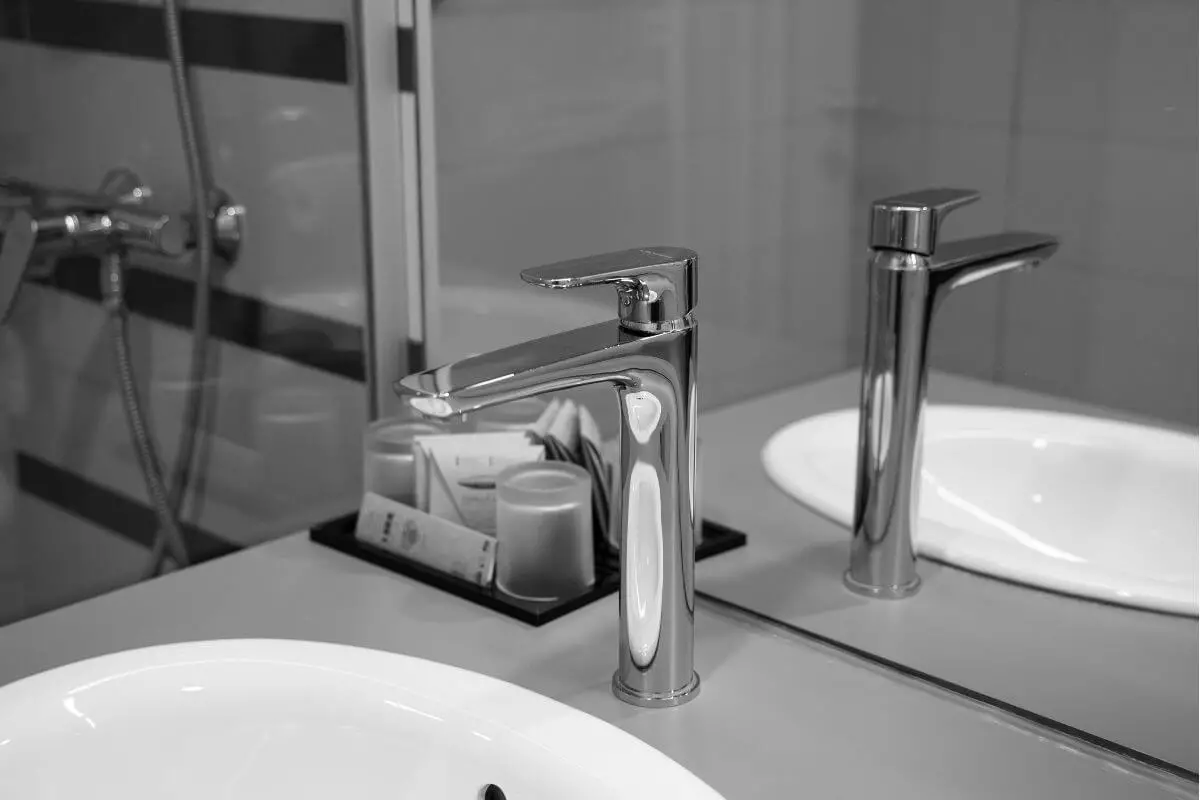When it comes to selecting a faucet for your bathroom or kitchen, you’re presented with various options, each with its own set of advantages and aesthetics. Two common choices are single-hole faucets and widespread faucets. In this article, we’ll compare these two types to help you make an informed decision that best fits your space and style.
Single-Hole Faucets
1. Streamlined Design:
- Advantage: Single-hole faucets have a sleek, minimalist design. They take up less counter space, making them ideal for smaller bathrooms or kitchens where space is at a premium.

2. Easy Installation:
- Advantage: Installing a single-hole faucet is generally straightforward. It requires only one hole in the countertop or sink for both the faucet and the handle(s), simplifying the installation process.
3. Modern Aesthetics:
- Advantage: Single-hole faucets often convey a contemporary and uncluttered look, perfect for modern interior designs.
4. Water Efficiency:
- Advantage: Many single-hole faucets are designed with water-saving features, helping you conserve water and reduce utility bills.
5. Temperature Control:
- Consideration: Some single-hole faucets have a single handle that combines both hot and cold water controls. If you prefer separate handles for temperature control, this might not be the best choice for you.
Widespread Faucets
1. Customizable Layout:
- Advantage: Widespread faucets consist of separate components for the spout and handles. This design offers flexibility in terms of layout, allowing you to place the handles and spout at the precise locations you prefer on the countertop.
2. Traditional Elegance:
- Advantage: Widespread faucets often feature a more traditional and elegant design, making them suitable for classic or vintage-style bathrooms or kitchens.
3. Handle Options:
- Advantage: With widespread faucets, you can choose between various handle styles, including cross handles, lever handles, or knob handles, giving you more control over the faucet’s appearance and functionality.
4. Increased Installation Complexity:
- Consideration: Installing a widespread faucet can be more complex than a single-hole faucet because it involves multiple holes in the sink or countertop. Professional installation may be recommended.
5. Durable Construction:
- Advantage: Widespread faucets are typically built with high-quality materials, ensuring long-term durability and reliability.
Conclusion
The choice between a single-hole and widespread faucet ultimately depends on your personal preferences, the available space, and the overall design of your bathroom or kitchen.
- Choose a single-hole faucet if: You have limited counter space, prefer a modern and minimalist look, and value easy installation and water efficiency.
- Opt for a widespread faucet if: You want a more traditional and elegant appearance, desire customizable layouts, appreciate different handle options, and are willing to invest in professional installation.
Before making your final decision, consider the style and functionality that best suits your space and explore the wide range of options available from various faucet manufacturers. Whether you choose single-hole or widespread, the right faucet can add both beauty and functionality to your home.
FAQs
Are single-hole faucets less durable than widespread faucets?
The durability of a faucet depends on the manufacturer and materials used. Both single-hole and widespread faucets can be durable when made with quality materials and craftsmanship.
Can I convert a single-hole faucet to a widespread faucet or vice versa?
Converting between these faucet types typically involves changing the sink or countertop, as they require different hole configurations. It’s not a simple conversion and often requires professional assistance.
Do widespread faucets have better water flow control than single-hole faucets?
The water flow control is determined more by the faucet’s internal mechanisms and design rather than whether it’s single-hole or widespread. Both types can offer precise water flow control if designed well.
Are there any restrictions on the types of sinks that can accommodate single-hole or widespread faucets?
Single-hole faucets work well with most sinks that have a single pre-drilled hole. Widespread faucets require three separate holes, so they are typically compatible with sinks designed for widespread faucets or larger countertops.
Do single-hole faucets cost less than widespread faucets?
Single-hole faucets tend to be more budget-friendly than widespread faucets, primarily because they use fewer materials and are easier to manufacture and install. However, prices can vary widely based on brand and features.



